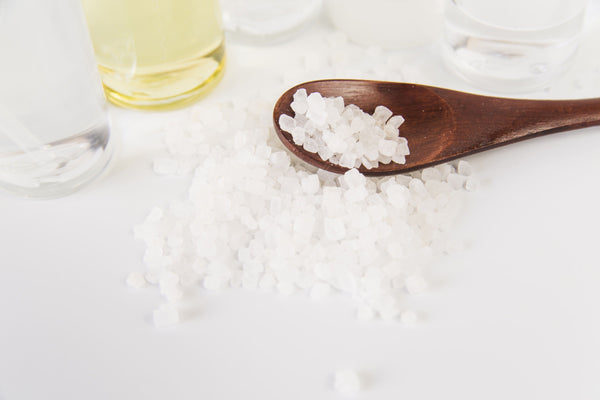
Electrolytes and Stress – What’s the Connection?

Electrolytes, such as sodium, potassium, magnesium, and calcium, play a crucial role in maintaining your body’s fluid and electrolyte balance. While they are often associated with hydration and recovery, their effect on mental health and stress reduction is just as vital.
Balanced electrolytes help regulate the function of the nervous and hormonal systems. A deficiency in certain electrolytes can lead to an increase in cortisol levels – the stress hormone – which can contribute to heightened feelings of tension and anxiety.
How Do Electrolytes Help in Reducing Stress?
1. Magnesium
Magnesium is one of the most important minerals for supporting the nervous system. Studies show that magnesium can reduce cortisol levels, the stress hormone. Additionally, it helps with muscle relaxation and improves sleep quality, both of which are crucial for recovery after stressful situations.
Research indicates that individuals with magnesium deficiencies often experience higher levels of anxiety and tension. Supplementing with magnesium may help improve mood and reduce stress.
2. Potassium
Potassium supports the functioning of the nervous system and is essential for maintaining electrolyte balance within cells. A deficiency in potassium can lead to fatigue, irritability, and even depression. Optimal potassium levels help alleviate tension and improve mood.
Studies suggest that potassium supplementation may enhance focus and reduce stress-related symptoms.
3. Calcium
Calcium plays a key role in regulating nerve tension. A deficiency in calcium can lead to feelings of anxiety, irritability, and poor mental well-being. Research shows that calcium helps in the release of neurotransmitters that support relaxation and a sense of calm.
4. Sodium
While sodium is often demonized in the context of health, it is essential in the right amounts for proper nervous system function. Maintaining proper sodium levels can prevent a decrease in physical performance during stressful situations.
Scientific Evidence – How Electrolytes Impact Stress
Studies indicate that electrolytes positively influence stress and tension levels in both humans and animals. A study published in Neurochemical Research (2012) found that magnesium supplementation reduced anxiety levels in individuals dealing with chronic stress.
Another study, conducted by The Journal of Nutrition (2009), showed that optimal potassium levels help the body manage both physical and mental stress more effectively.
When to Reach for Electrolytes?
Electrolytes are especially helpful during times when your body is under increased stress or strain. It's important to replenish them in situations like:
- After intense workouts,
- During periods of heightened stress,
- After illness or infection,
- During hot days, when electrolytes are lost through sweat,
- When you're feeling mentally or physically drained.
How to Effectively Replenish Electrolytes?
To improve your mood and reduce stress, it’s worth incorporating electrolyte supplements into your routine. Here are some products that can help you maintain electrolyte balance:
Electrolytes play a key role in reducing stress. Maintaining optimal levels of magnesium, potassium, and calcium supports nervous system health, improves mood, and helps you handle tension more effectively. If you want to support your emotional balance, physical recovery, and overall well-being, electrolytes should be a regular part of your routine.
Sources:
1. Barbagallo, M., & Dominguez, L. J. (2010). Magnesium and aging. Current Opinion in Clinical Nutrition and Metabolic Care, 13(1), 29-34.
2. Volpe, S.L. (2013). Magnesium in disease prevention and overall health. Advances in Nutrition, 4(3), 378S–383S. https://doi.org/10.3945/an.112.003483
3. Cid, L., & Fernández, R. (2012). Potassium, magnesium and mental health. Neurochemical Research, 37(1), 15-19.




